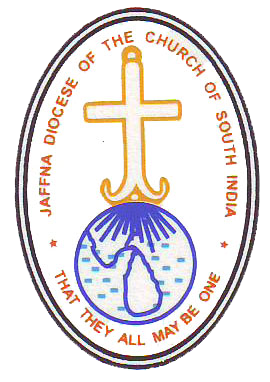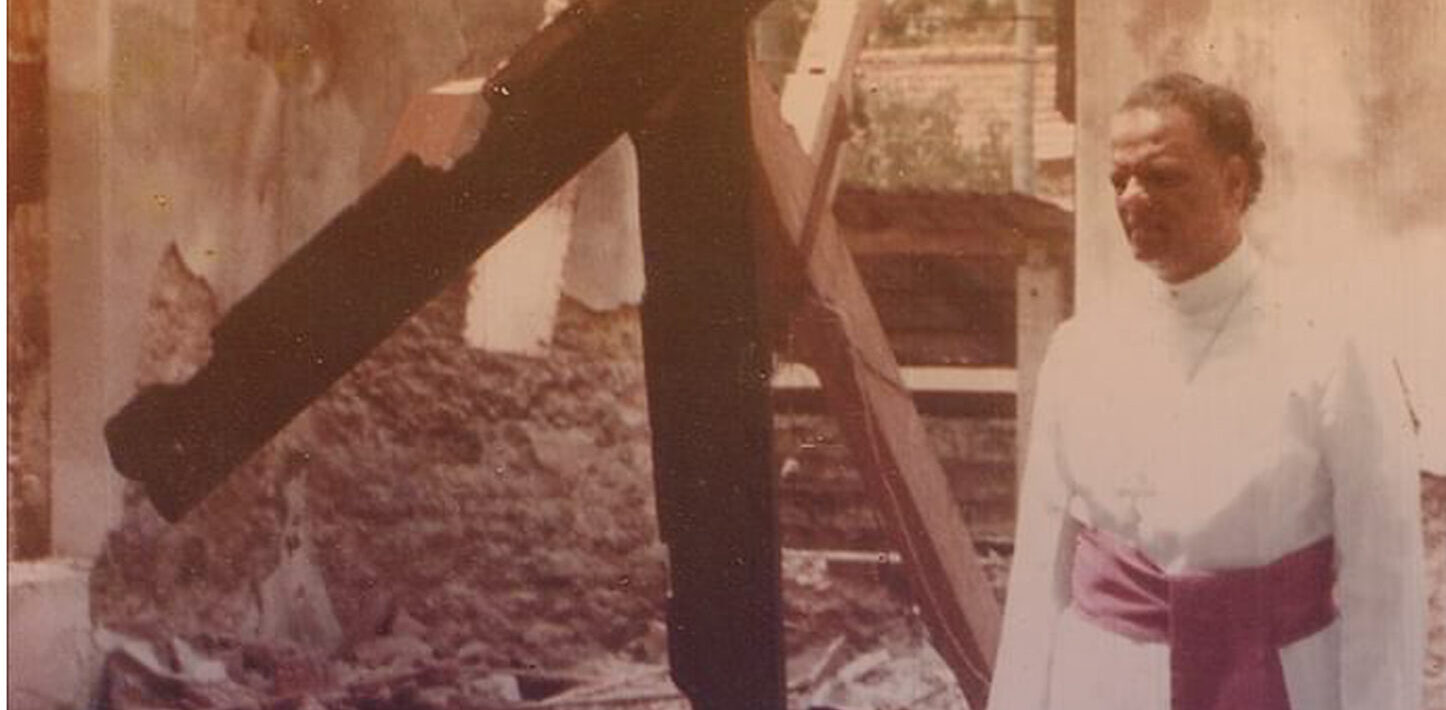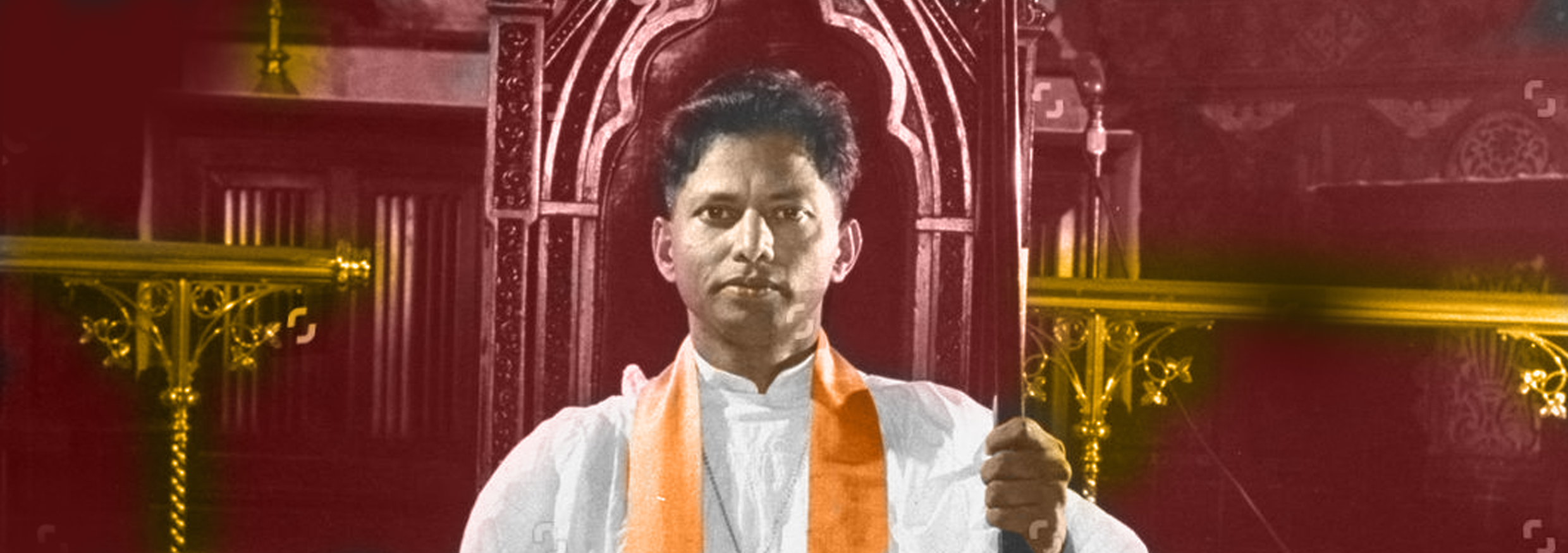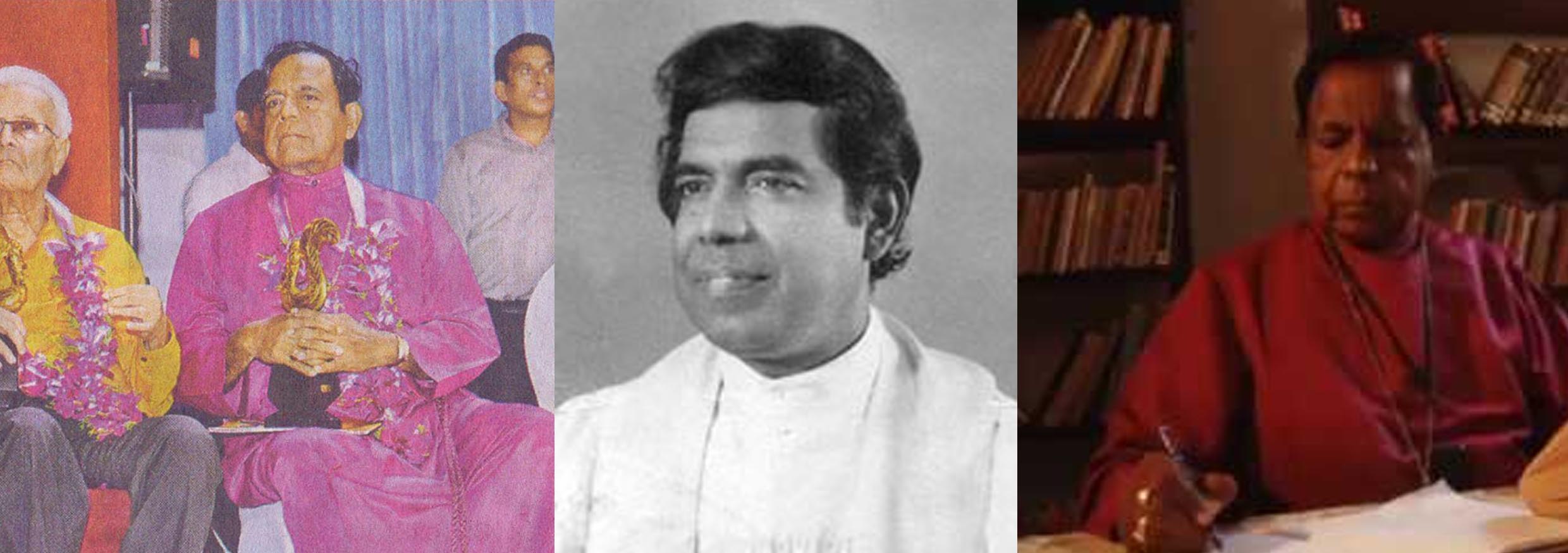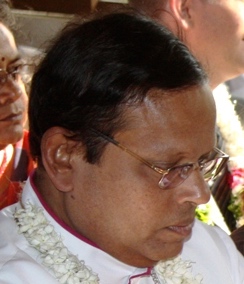Bishop in Jaffna [30Th June 1971 – 28Th Feb. 1993]
Jaffna Diocese of the Church of South India
Church of South India (CSI) was the first United Church in the world, organised between the episcopal (Anglican) and non-episcopal (Congregational, Presbyterian, Methodist) churches, inaugurated on the 27th September, 1947 at St George’s Cathedral Church in Chennai. The South India United Church (SIUC: Congregational and Presbyterian) came into being in 1908, and the Congregational Church of Ceylon (of the American Ceylon Mission) joined this Church Union in the year 1909. The year 1947, an year of transition for the Church in Jaffna in terms of Church Governance was from Congregationalism to Episcopal system, in which Rev Sabapathy Kulandran BA, BD was consecrated as the first Bishop of the Jaffna Diocese of the CSI. He retired on his 70th birthday in September, 1970. A few months after, Rev David Jeyaratnam Ambalavanar BD, MTh, was consecrated as Bishop at the Cathedral Church, Vaddukoddai on the 30Th June, 1971 in a solemn service, and installed as the second Bishop of the JDCSI. He served in that capacity until his 65Th birthday on the 28Th February 1993.
The ministry of his episcopate and leadership for twenty-two years marked him as an outstanding leader of his Church and Tamil Community in Sri Lanka. He was also an ecumenist with a fresh understanding of ecumenism deviating from the missionary era practice, ie: each denomination was confined to certain geographical region where its congregations existed and its ministry exercised. Churches of the ACM since 1816 were confined among the Tamils of the Jaffna peninsula. It was in the year 1979, he decided to take his diocese beyond Elephant Pass, as he was moved by the influx of Tamil refugees from the South and the Central Hill country into the Vanni region due to ethnic riots in 1977.
The displaced Tamil families sought refuge in the new region as a community of homeless and landless labourers trying to find a living under such conditions. The displacement of Tamils continued from the rest of the country, and escalated due to 1983 ethnic riots. It was in this context and subsequent armed conflict, the Jaffna Diocese under his leadership extended its services and pastoral care with pioneer church
workers both ordained and lay. The church established Day Care Centres (DCC) to feed, educate and protect children of preschool age, and over time Kinder Not Hilfer (KNH), Christian Children Fund of Canada (CCFC), with local and church resources supported this program both in the Vanni and in the Jaffna peninsula, and later it was extended to the Eastern Province since 1989 and to the Central Hills. Many other programs were added to support the families, women and men, as the affected and traumatised people in numbers increased due to war in the whole of North and East. Hence the Church’s mission spread far and wide with new congregations and communities established for the wellbeing of families with programs of new Housing and land for home garden, self-employment opportunities with new Vocational Training Centres (VTC).
The extension of the Church’s mission required more workers to serve in the new communities. The training for pastoral ministry and theological education in India for the candidates from Ceylon faced the challenge of obtaining Indian Visa for the 4-5 year courses of study. This led to a vision to establish the Christian Theological Seminary (CTS) at Maruthanarmadam, Chunnakam in October, 1983, and 95% of the clergy ministering now have been trained, along with a parallel program of Lay training. This year in October, the CTS marks 40 years of theological education and training for pastoral ministry during the war and post-war years.
Courtesy: Bishop D J Ambalavanar – The Island
